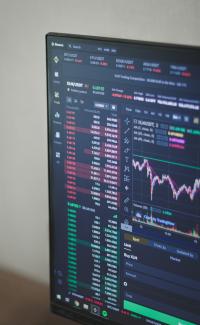
The K-Shaped Economy: Why It Matters and What It Means for You
You’ve probably heard the term K-shaped economy thrown around, but what does it actually mean? More importantly, how does it affect you?
The concept is simple: while some people are thriving, others are struggling to keep up. Imagine the letter K—one arm goes up, the other goes down. That’s exactly what’s happening in our economy.
Key Takeaways
- The top 10% of earners are doing well, benefiting from rising stock prices, home values, and financial assets.
- The bottom 90% are experiencing financial strain due to stagnant wages and rising living costs.
- Both groups contribute about 50% of economic spending, which is keeping the economy afloat—for now.
- If the top 10% slow their spending, economic growth could take a major hit.
How Did We Get Here?
The divide is largely fueled by differences in wealth accumulation. The top 10% hold the majority of financial assets—stocks, real estate, and other investments—while the bottom 90% rely more on wages, which haven’t kept pace with inflation.
For the wealthy, market growth means more wealth. For everyone else, rising costs make it harder to get ahead. That’s why it feels like two completely different economies—because, in many ways, it is.
What’s the Risk?
Right now, both groups are spending enough to keep things moving. But if high-income households cut back—whether due to economic concerns, higher taxes, or a slowdown in financial markets—it could trigger a broader downturn.
This makes it more important than ever to stay financially prepared, regardless of where you fall on the spectrum.
How to Protect Yourself
No one can predict the future, but you can take steps to stay financially secure:
- Save strategically—Make sure you have enough reserves to weather an economic slowdown.
- Diversify investments—Relying on just one source of income or investment can leave you vulnerable.
- Be mindful of spending—Ensure your financial habits align with your long-term goals.
A K-shaped economy creates winners and losers, but the right financial strategy can help you stay on solid ground no matter what happens.
